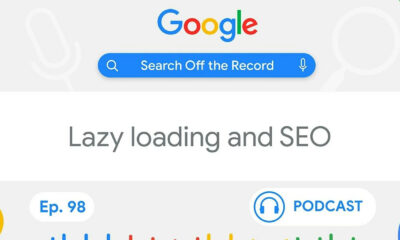SEO
Local SEO Strategies For Plumbers And Other Trades
Plumbers and other tradespeople are essential in modern society, yet they face one huge barrier to entering new markets: Peeling away customers from the competition.
Many homeowners have established relationships with plumbers and contractors, making breaking into certain markets difficult.
Thankfully, plumbers have ways to excel in a new market, particularly when capturing new homeowners or performing emergency services where other plumbers are unavailable.
The best sources for seizing these opportunities are Google Search, and you can improve your visibility there using local SEO.
In this guide, you’ll find tips and tactics to help plumbers, electricians, contractors, and other tradespeople and businesses break into a new market, build a customer base, and expand your brand.
Off-Site SEO Essentials
One of the biggest traffic sources for all businesses comes from ‘near me’ searches, particularly on mobile phones.
By optimizing your Google Business Profile listing and third-party directory listings, you can build your business’s exposure and increase the number of incoming calls to your business.
Google Business Profile Optimization
Your Google Business Profile shows in local search pack results and is displayed in Google Maps searches.
As a result, optimizing your Google Business Profile listing enables customers to call your business, drive to its location, or visit its website with just one click.
To optimize your Google Business Profile listing correctly, follow these tips and dive deeper with this guide.
- Ensure consistent NAP information (i.e., name, address, and phone number).
- Verify your business on Google Maps.
- Respond to customer reviews on your profile with helpful advice or kind responses.
- Write a description of your business and its services.
- Use high-resolution and relevant photos to showcase your brand and company.
Local Directories
Next, you’ll want to optimize your brand’s business profile on other third-party sites that customers frequently use to find plumbers, including:
- The Better Business Bureau.
- Yellow Pages.
- Angie’s List.
- Yelp.
- Houzz.
- Home Advisor.
- LinkedIn.
- Iambuilders.com.
- Blue Book.
While some sites like Yelp have waned over the years, these directory sites are still important business referral sources.
Some sites provide ranked lists of different businesses based on customer reviews, which can furnish social proof and trust for your business (if you get enough positive reviews).
Moz offers tools for local citation building, or you can manually claim each business yourself, following the tips above to optimize your social media presence.
Build A Social Media Presence
While engaging with customers on social media is not critical for many contractors or trades, sources like Facebook can be valuable for customers looking for special announcements, business hours, and reviews.
Build a social media page for Facebook and LinkedIn, providing high-resolution photos and clear NAP info for easy contact.
Managing Reviews
Finally, you’ll need to manage reviews on external third-party websites to build customer trust.
Generally, you should analyze each third-party site at least once a month, if not more, to see what people are saying about your business and how you can improve.
Think of reviews like personal referrals – which are already a massive source of revenue for your business.
According to one survey, 84% of customers of service businesses and tradespersons said reviews are ‘important’ or ‘very important’ in their decision-making process.
Follow these tips to manage online reviews for your plumbing business:
- Encourage customers to leave a review after a positive service or engagement.
- Encourage customers to leave reviews on your website and all marketing materials.
- Respond to positive reviews.
- Respond to negative reviews with solutions or an apology.
Don’t worry too much about negative reviews, as most customers will be equally dismayed by overtly harsh reviews.
However, responding to negative reviews with a positive service engagement could build more customer trust over time.
It also helps you show off your customer service skills.
On-Page SEO Essentials
Now that you’ve optimized your business listing on strategic third-party websites, it’s time to optimize your website for local SEO results.
Local Keyword Research
To begin, you’ll need to conduct local keyword research to see which terms drive the most qualified traffic to your website.
Open up a free Google Ads account and use the Keyword Planner tool to search for keywords in your area.
For example, if you operate in Houston, you could use “plumbers houston” as your seed keyword and filter your search for Houston, Texas, to uncover further ideas:
 Screenshot from Google Ads, July 2022
Screenshot from Google Ads, July 2022Based on this list, “plumber houston tx” and “houston plumbing services” have less competition and can be easily won in local search results.
You can also filter this list by “top of page bid” and look at the highest bids for the most commercially relevant keywords.
You can also take a competitor from your initial keyword list and plug in their URL to see which keywords they rank for.
You can add a semantic filter to adjust your results for strictly plumbing-related keywords.
 Screenshot from Google Ads, July 2022
Screenshot from Google Ads, July 2022Building a list of these keywords will be critical for optimizing meta tags on top-level pages and developing content ideas.
Meta Tag Optimization
Now that we have our list of seed keywords, we need to apply them to our web pages.
The first area will be your homepage, where you can customize the title tag to include your brand name and a seed keyword, such as “Matt’s Plumbing Company | Plumbers Houston.”
You will need to optimize the metadata on each page with relevant keyword data to make pages more likely to rank for search results.
This metadata will include:
- Title Tag/H1: The primary keyword related to a page and the page’s topic. Title tags must be between 50-60 characters, or titles will be truncated in SERPs (search engine results page).
- Meta Description: A brief description of your webpage, which includes your seed keyword and a call-to-action to read or find out more. Meta descriptions are ideally between 145–160 characters.
- Header Tags: The subtopics or dividing headers across each page. Each header should include a relevant long-tail keyword.
- URLs: URLs should retain a simple structure with your site name followed by the name of the title of the webpage.
- Keyword Usage: Seed keywords should be used in the webpage’s introduction and 1–5% throughout the text document.
Local Schema
While local keyword research will certainly help Google or Bing index your website for local search results, nothing is guaranteed.
To help search engines index your website properly, use schema markup on web pages to properly label and index them.
While schema markup can be complicated, Google’s Structured Data Tool simplifies the task.
Insert your URL and add the appropriate schema markup to ensure each page on your website is properly indexed by Google.
Some common schema markup data that will apply to your plumbing business include:
- Geo.
- Type.
- Opening Hours.
- Telephone.
- Address.
- Review.
- Price.
See our Complete Guide to Local Schema for more useful tips.
Mobile Responsiveness
Another big component of local search is mobile search.
Many local searches for your business will be conducted via smartphones, so you can’t ignore the importance of mobile.
Thankfully, most modern CMS options come with responsive web design.
However, to ensure your website runs smoothly on mobile, consider the following tips:
- Compress all images.
- Reduce clicks and leverage scrolling.
- Keep webpages short and simple.
- Insert click-to-call buttons and icons.
- Limit the amount of JavaScript.
- Avoid large videos (leverage YouTube instead!)
Site Speed Optimization
Fortunately, by optimizing for mobile, you’ll also be optimizing for page speed.
To increase page speeds, consider the following tips:
- Minify CSS.
- Enable file compression.
- Use browser caching.
- Clean up redirects.
You should still identify page speed issues using Google’s Page Speed Insights for more helpful information.
Creating Consistent NAP
As a final tip for this section, it’s crucial to ensure that all contact information (name, address, phone number = NAP) and branding are consistent across all your pages.
For example, inserting a click-to-call button and your address in the top corner of each page (or the footer) will ensure customers can contact you whenever they’re ready.
Content Essentials
With your website in place and ready to rock, it’s time to build landing pages for your most important services and service regions.
Service Pages
Ideally, your UX should retain very simple navigation, with your target keyword (such as “Plumbers Houston”) and all auxiliary services as secondary or service pages.
These pages could include services, such as:
- Emergency Plumbing.
- Toilet Repairs.
- Pipe Leaks.
- Garbage Disposal Repair.
- Water Heater Services.
- Sewage.
- Drain Cleaning.
- Gas Piping.
These should all be located under a general Plumbing Services top-navigation page where users can explore different services, find out pricing, repair specifics, etc.
Regional Pages
Another important consideration for plumbers and contractors is whether your business serves a large metro area or different locations.
For example, if you provide plumbing services to most of New York City, you could create regional pages for Manhattan, Brooklyn, and Queens with a list of various services.
Furthermore, if there is enough keyword volume to warrant those pages, you could create regional pages for neighborhoods in New York, such as the Upper East Side, Upper West Side, and SoHo.
These pages may also rank for ‘near me’ searches in those neighborhoods.
Creating A Blog
Finally, you could also consider starting a blog if you feel it will give you a leg up on the competition.
Blogs provide several benefits for local businesses, including plumbers, such as:
- Providing customers with easy DIY tips and repairs.
- Separating your brand from other plumbers as a local authority.
- Providing you with engaging content to share on your social channels.
- Ranking for long-tail keywords relevant to your business to drive traffic.
You can also consider sharing DIY and tutorial videos on platforms like YouTube, which link back to your website.
Video content is highly shareable and easy to consume, giving your business much-needed exposure.
Link Building Strategies
While we discussed ways to drive traffic from third-party websites, link building can be an exceptionally useful tool in your arsenal to give your business a leg-up on the competition.
Link building – whether it’s using rel=follow or nofollow links – directs qualified traffic to your site and customers to your business.
If you don’t have the money to spend on a tool like Ahrefs, here are some free local link building tips to help you drive traffic to your website:
- Reach out to newspapers in your town that list local contractors and ask for a link to your site.
- Reach out to local bloggers who have interviewed local businesses in your area to contribute a quote or interview.
- Write guest posts on websites with local influencers to contribute some DIY repair tips and other related content.
- Sponsor a local team, volunteer, or host an event that forces journalists and bloggers to write about your business.
These tips will help give your brand exposure, which, in turn, will drive more customers to your business over time.
Digital Advertising
Online advertising can also be very effective if you want to drive quick exposure and calls to your business.
For example, advertising on Google Ads allows you to bid on the keywords you’re trying to rank for, so your website shows up above the local search pack.
 Screenshot from Google Ads, July 2022
Screenshot from Google Ads, July 2022While I suggest enlisting help or taking a course to begin advertising on Google, here are a few helpful tips to help you promote your plumbing business on Google:
- Use geotargeting to narrow your audience to a specific region.
- Insert negative keywords to reduce ad spend.
- Leverage location-specific keywords to compete with ‘“near me” and organic results.
- Enable ad extensions that provide easy call options and list your business address.
- Create landing page copy that’s relevant to your ad and includes relevant keywords, high-quality images, and an easy way to contact your business.
- A/B test ads to see which ad copy generates the best performance.
- Use longer tail keywords with less competition or change your bid strategy to limit CPC (cost per click).
In addition, Facebook provides sophisticated audience research tools that allow you to advertise to customers based on demographic information, such as whether they’re a homeowner, over a certain age, or own residential/commercial real estate.
Email Marketing
Finally, I want to mention email marketing, as it can be a powerful tool for local businesses.
Plumbers can benefit from email marketing by sending re-engagement emails that remind previous customers of your business, especially if you work with residential and commercial residents.
You can send emails to advertise local promotions in your area, such as discounted inspections or preventative maintenance.
However, email marketing can be expensive, especially for a trade that relies heavily on emergency repairs.
For this reason, email marketing is not truly necessary for plumbers unless you actively create content, engage with the community, or run promotions.
Conclusion
SEO for tradespeople and their businesses involves many of the same strategies as with other local businesses.
However, tradespeople require special consideration for their unique business model.
Some forms of marketing, such as social media and email marketing, may not be as effective as advertising or reputation management.
Hopefully, by following these tips, you can establish a positive web presence for your business and start getting more phone calls.
More resources:
Featured Image: Khosro/Shutterstock

















You must be logged in to post a comment Login